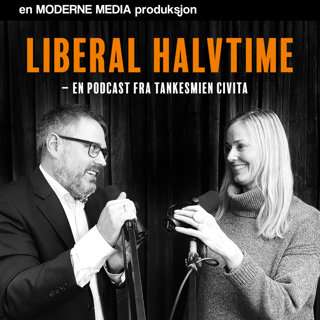
E178: Social Media Isn’t Toxic: Here’s What the Data Says - Dr. Jeff Hall
Social media isn’t “crack for your brain” for most people—Jeffrey Hall argues the best evidence shows tiny average effects on wellbeing, lots of measurement mess, and a bigger story about relationship...
13 Jan 59min

E177: Why Bankers Got Paid and Europe Recovered: The London Debt Agreement Explained
Economic historian Tobias Straumann breaks down how Germany’s debt meltdown in 1931 crashed the global economy—and how a surprisingly generous 1953 debt deal helped spark the German economic miracle b...
9 Jan 54min

E176: College Student IQ Has Collapsed: Researcher Breaks Down His New Meta-Analysis - Dr. Bob Uttl
A cognitive psychologist explains why college student IQ now averages about 102, why that shift is mathematically inevitable as enrollment expands, and how outdated testing norms and student-evals can...
6 Jan 1h 15min

E175: Roads Are Bankrupt: New Car Fees Are Coming - Jeff Davis
Jeff Davis breaks down why the Highway Trust Fund has been insolvent since 2008 and what fixes (and tradeoffs) are realistic as EVs grow.GUEST BIOJeff Davis is a Senior Fellow at the Eno Center for Tr...
30 Des 20251h

E174: Acquired Broke Every Podcast Rule: Harvard Business School Professor Explains Why
Harvard’s Shane Greenstein explains why Acquired wins by treating each episode like an audiobook—high-signal, audience-first, and built for durable value.GUEST BIO: Dr. Shane M. Greenstein is a Profes...
23 Des 20251h 4min

E173: Broke. Woke. Stroke. A tenured prof explains why college is failing
Tenured sociology professor Mark Horowitz explains why falling preparedness, grade inflation, and perverse incentives are eroding college standards—and why “broke, woke, stroke” helps describe the pat...
17 Des 20251h 7min

E172: MMT Is Going Mainstream - Right as the AI Bubble Is About to Pop: Explained by Dr. Maggiori
A wide-ranging conversation with economist and AI consultant Dr. Emmanuel Maggiori on why Modern Monetary Theory overpromises a “free lunch,” what really causes inflation, how Bitcoin and AI are misun...
9 Des 20251h 44min

E171: How the Internet Got Tamed: James Corbett on Media & Power
Independent journalist James Corbett joins Jesse to trace how media, tech, and elite power have reshaped the information landscape—from Time’s 2006 “You” to today’s post-truth, AI-saturated world.GUES...
6 Des 202558min






















